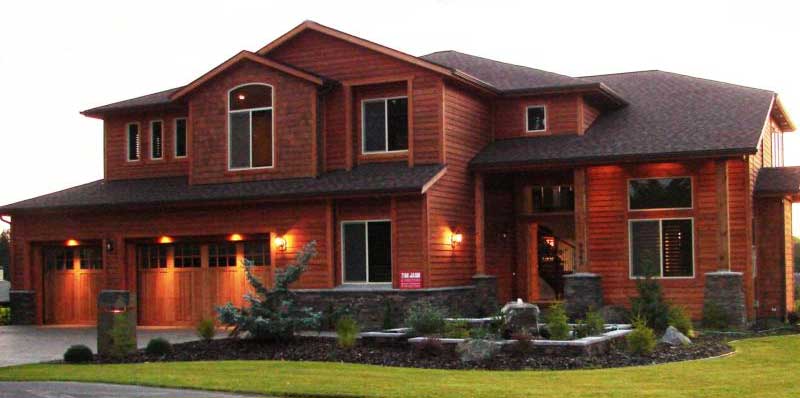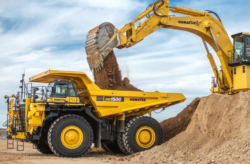Calculating the total cost of building a home is one of the most crucial steps a future homeowner will take when initiating the custom home building process. As you move through various construction phases, you will need to consider multiple variables—meaning estimating the cost of the building process won’t be simple.
While it will involve some complex calculations and a team of home building experts, it’s a question you must answer. Failure to pinpoint the total cost will lead to an inaccurate budget that may leave your account overdrawn. In the building process, a budget will guide your decision making on home’s design, interior finishes, and the home’s amenities, among other components. The following cost categories will help you better understand the building process and make an informed estimate.
When building a home, architectural firms like Monster House Plans make it easy to select from a massive library of house plans of all shapes and sizes. Assigning the experts the task of designing your house plan grants you the freedom to focus on balancing your checkbook, rather than drafting a DIY house plan to fulfill your lifestyle needs.
Site
Unless you already own the land, you will need to calculate the amount of money that should be devoted to site acquisition. It will likely consume a large portion of your budget and will determine how much money you’ll have left to begin and complete the construction. Before purchasing, ensure that the land is suitable for home construction and that the building cost doesn’t exceed your budget.
Besides the site’s sales price, other aspects will significantly affect the overall costs. Every piece of land has unique attributes that will ease the building process or make it more challenging. Building on steep slopes requires extensive and expensive excavation work.
Along with incline, vegetation cover, soil type, and soil condition will also impact the costs. For example, preparing the land with rock formations and expansive soil demands a significant amount of labor, which will ramp up the price.
If cost-efficiency is a top priority, it will help if the construction site already has utilities like roads, sewer, water, and electricity. If a construction site is bare or in its rudimentary stages of development, it will be costly to install or upgrade these utilities.
Allocating a financial cushion for the unforeseen is in a homeowner’s best interest, especially if they stumble on design challenges, including lot shape, building restrictions, easements, zoning, setbacks, and community design guidelines. Before construction, ensure that you also account for noise, floods, soil erosion, snow load, wildfire mitigation measures, and factors such as driveway grade and length before diving headfirst into the building process.
Size
The size of the home you intend to build will affect the overall costs directly. Logically-speaking, increasing the size of your house should raise the total project costs. However, an increased house size won’t necessarily escalate the price per square foot. The distribution of the rooms and expensive items in a larger house spans over more square feet.
Although size contributes to the costs, its impact varies based on other factors. For instance, a 2000sqft, two-story building costs less than a one-story of the same square footage, as a 2000sqft, one-story structure translates to a wider foundation, more site work, and more roofing.
Fortunately, size is a design element you have complete control over, as the homeowner.
Structure specifications
A large percentage of your allocated budget will cater to your desired specifications that are sorted into three categories: finishes, systems, and structural elements. When narrowing down your options, you’ll need to consider the materials’ size and quality. Note that it will cost more if you decide to incorporate customized elements, such as those designed for energy-efficiency.
While custom features such as solar panels may initially incur extensive costs, these solar panels may reduce operating and management expenses after installation. With a sizable amount of your monthly fees chipped off, these custom details may be worth the investment.
If you want luxurious finishes on the windows, countertops, cabinetry, millwork, appliances, or other fixtures, be prepared to spend a considerable amount of money to bring these visions to life. For example, granite countertops cost considerably more than laminated ones. Systems like HVAC, home tech, and thermal wall improve your home’s functionality but can be expensive to install. Ranking these finishes in terms of priority can help you alleviate unnecessary costs.
A custom house built with intricate detailing, elaborate floor plans, vaulted ceilings, and other creative touches will require more labor, time, and financial resources to execute correctly. The builder will need more time to cut, measure, and position different features.
Before committing to the building process, realize that it will cost more money to complete specific rooms than others, including bathrooms and kitchens, as they require expensive equipment to fulfill their purpose. In a bathroom or kitchen, a homeowner will need to install countertops, tile, plumbing, lighting, electrical wiring, appliances, and fixtures.
Location
The construction costs vary according to the location. The cost of constructing a custom home in a rural area will differ from the construction costs associated with building a custom home in an urban area. Houses located in an enclosed neighborhood vs. houses situated near bodies of water will accumulate different costs.
The location affects these prices due to rises in labor costs, special orders of specific materials, and site accessibility. Various cities, regions, and states designate varying labor costs. For example, constructing a custom home in a metropolitan area of California will cost more than building a home in an Ohio suburb. So before hiring a builder, inquire about your state/region’s labor rates.
Final thoughts
Constructing a custom home using locally-sourced construction materials is typically cheaper than shipping from other states or countries. Similarly, if your team of contractors, subcontractors, cranes, bulldozers, and delivery trucks can easily access the building site, you’ll incur fewer costs and reduce the expenses per square per foot. Note that the builder will charge more if they have to exert more effort and devote time to unloading, maneuvering, and hoisting various building materials.
Constructing a custom home allows you to incorporate the structures, architectural styles, state-of-the-art technology, and pattern trends that appeal to your design style and lifestyle needs. Hiring a reliable team of contractors to custom build your home will help you achieve your goal at a reasonable cost. Ensure that you conduct early hiring to avoid racking up additional design charges for last-minute house plan drafting.







